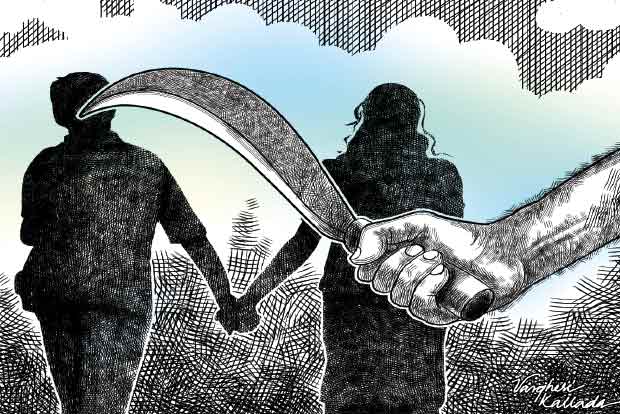Honour Killing: A Tragic Legacy of Violence and Control
Honour killing is a deeply ingrained practice that continues to devastate families and communities, particularly in parts of the world where rigid social and cultural norms govern the lives of individuals.
IN BRIEF
Thinkbrief
7/23/20253 min read


Honour killing is a deeply ingrained practice that continues to devastate families and communities, particularly in parts of the world where rigid social and cultural norms govern the lives of individuals. At its core, it is a violent response to the perceived dishonour brought upon a family, often triggered by actions taken by a woman. These actions might range from something as seemingly innocent as choosing her own partner to more serious acts like engaging in premarital sex or seeking education outside the traditional bounds. In these societies, women’s lives are inextricably linked to the family’s reputation, and any deviation from the expected norms is often considered an affront to the family’s honour. While it is predominantly women who suffer at the hands of this cruel practice, the truth is that honour killings transcend gender to some extent. Men too have been victims, though less frequently, as their actions challenge social order or deviate from community expectations. The core issue, however, remains the same: honour killings are about maintaining control, upholding an ideal of purity, and responding to a community’s rigid view of moral conduct.
The reasons behind honour killings are both complex and deeply rooted in the cultural and social structures of many societies. The concept of honour itself often remains tightly controlled by tradition and has evolved to define a family’s social value based on the actions of its members, particularly women. Women’s worth is often reduced to their ability to maintain familial honour, and their lives are governed by the desires and expectations of male relatives. This value system can create an environment where a woman’s independence, her choices in love, or her pursuit of education are seen as threats, not just to the family, but to the very foundations of a patriarchal society. It’s not just about upholding a social contract; it’s about control over women’s bodies, choices, and futures. For the victims of honour killings, the tragedy lies in their own sense of worth being so bound to the ideas of others that they have little agency over their lives. They live in constant fear that any decision that doesn’t align with family expectations might lead to punishment, ostracism, or, in the worst case, death. In many instances, this fear is realized when their actions, no matter how innocuous or legitimate in their own right, are seen as a form of rebellion that cannot be tolerated. What makes this practice so horrific is not only the brutality of the act itself but the way it is justified—through the lens of protecting family honour and maintaining tradition.
For the perpetrators, honour killings can often seem like a tragic, if misunderstood, obligation. Many of those who commit these crimes do so under the belief that they are saving their family from disgrace, that they are taking a necessary step to restore balance and reputation. For fathers, brothers, and uncles involved in such acts, the pressure is immense, and the crime is often carried out in silence, without any thought of intervention or remorse. This, of course, does not diminish the cruelty of the act, but it highlights how deeply cultural expectations and the desire to maintain family unity and honour can cloud one’s sense of morality. The emotional toll on these individuals is immense, even if it is not immediately recognized. In the wake of an honour killing, family members may find themselves divided by guilt, grief, and the unbearable weight of having taken a life to preserve an ideal. The tragedy extends far beyond the victim, reaching into the hearts and minds of the entire family. Those left behind are often forced to live with the haunting knowledge that they participated in the destruction of a loved one, believing they were right. The ripple effect of these killings extends beyond the immediate family, often affecting entire communities and perpetuating cycles of violence. Honour killings fuel a societal perception that women’s rights are expendable and that family reputation is of higher value than individual life. This mind-set continues to trap people in toxic cycles of violence and control, making it extremely difficult to address and dismantle such deeply ingrained social structures. For many, the belief that these practices are justified by cultural or religious norms means that the victims’ voices are rarely heard or understood. In their silent suffering, they become nothing more than symbols of societal fears, and their humanity is stripped away in favour of a cruel, warped tradition.